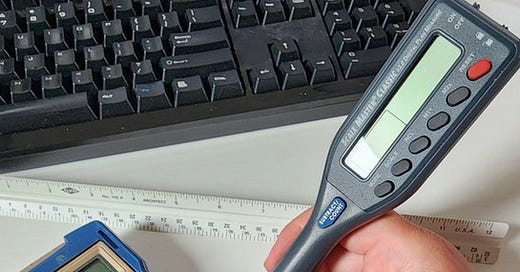After I graduated from architecture school, I went into construction - first as not much more than a grunt, then eventually in the office. The GC I worked for wanted to train me as a project manager to run jobs, and he felt that the best foundation to being a PM was being an estimator first. So, I learned how to estimate!
The fundamental goal of estimating is pretty simple: figure out how much it’s going to cost to build a project, and for the company to make money on the project, and to offer a fair price to the client. Not everyone cares about that last one sadly, but everyone should really care about the second one - if you’re not making money - whatever business you’re in - what’s the point?
I use what I learned as a estimator pretty much daily in my capacity as an Architect, business owner, owner/operator of small multifamily rentals, and consumer. And - suprising to most people - the most useful stuff isn’t the actual costs of things. I used to have everything memorized - if you wanted to know how much a tube of construction adhesive or waterproofing membrane or a square of siding in central VA in the mid 2000s, I had you covered.

But that’s the thing - the value of estimating isn’t in the memorization of numbers - it’s in the patterns of thought, in the people skills, in the analysis, and in the information that’s hidden between the lines of every estimate.
It’s art. It’s interpretation, it’s fuzzy, it’s gut feelings, it’s experience, it’s intuition. It’s messy.
It’s *also* numbers, don’t get me wrong. A lot of numbers.
Good estimators balance the art *and* the science.
So while I could easily write a book on everything I learned, and this post already got way too long, here are a few big things I learned that I still apply to my work everyday…and that are more on the art side than the science side.
Time is money, and reliability is time.
If you go for the cheap sub, but the cheap sub never shows up on time, leaves your site unsecured, ruins the work of other trades, or messes up procurement - in short, is unreliable - you will lose time.
For those of you new to this industry, let’s talk about something called “contractor time.”
Keep reading with a 7-day free trial
Subscribe to Building Knowledge to keep reading this post and get 7 days of free access to the full post archives.



